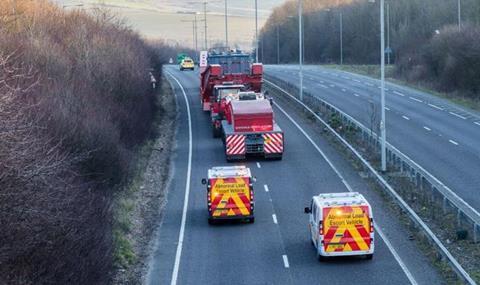Increased bureaucracy on abnormal load movements, which has seen the police enforcing different restrictions on moving abnormal loads, is costing the sector an estimated £16.8m a year, according to new research.
The independent research was commissioned by RHA, along with the British Holiday & Home Parks Association, the Heavy Transport Association, NCC, and Hanson European Caravan Transport, and was carried out by the Centre for Economics & Business Research (CEBR).
It follows increasing reports of abnormal load movements being delayed by growing demands for movement notifications and inconsistent movement embargoes.
Last year, the Heavy Transport Association said around 5% of its members were considering abandoning abnormal load movements due to the costs and difficulties arising from the police enforcing varying movement embargoes.
The CEBR report has found that the total financial impact of increased bureaucracy on abnormal load movements is an estimated £16.8m per annum.
It revealed that the increased requirements for notifications of movements have significantly increased financial and time costs for haulage firms.
The need for additional staff time to handle the higher number of notifications produced and processed has led to substantial impacts on firms.
Evidence suggests that these costs are being passed on to customers through higher prices, exacerbating the economic impact, the report added.
The CEBR report also estimates that increased regulatory demands have led to reduced activity for hauliers, resulting in wasted time and decreased revenue with significant economic losses amounting to up to £171m per annum.
In addition, extended journey lengths, as hauliers seek alternative routes to avoid problem areas, have also resulted in additional carbon dioxide emissions.
There are also knock-on effects to other parts of the economy, including impacts on tourism, housing, manufacturing, construction and more. The direct impacts on other industries include delayed project deliveries, as hauliers are restricted in moving vital loads.

The group is set to launch the full report in the coming weeks. In a statement RHA said it will continue to collaborate with its members, fellow trade bodies and stakeholders, and police on the problem.
It added: ”We continue to seek certainty, clarity and continue to invest in this vital sector and ensure these loads are moved safely.”

















